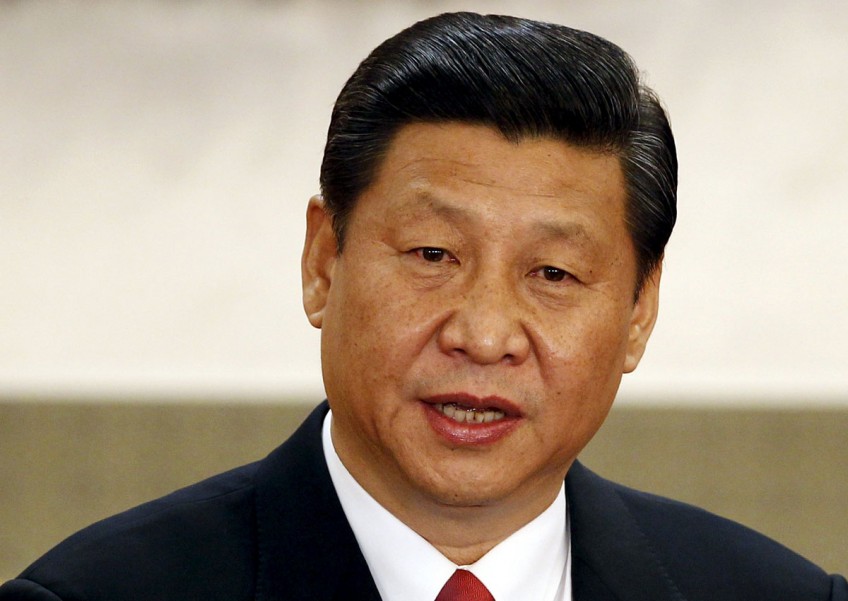More to come as Xi slays one sacred cow after another


BEIJING - With the recent abolition of China's controversial one-child policy, President Xi Jinping has chalked up another major policy change under his leadership, underlining his drive and power.
This comes after he has slain other sacred cows since taking power in 2012, including reforming the household registration system, or hukou, and streamlining the national college entrance examinations, or gaokao.
Will more entrenched policies be in Mr Xi's sights before his term is up in 2022?
These established but problematic policies in China have a few things in common.
First, they had been largely untouched for decades. Second, attempts to reform them had faced resistance from interest groups or institutions. The one-child policy, for instance, has been seen by many as long outdated. Concerns about China's ageing population and gender imbalance had led to calls for years to abolish the policy, which was introduced in 1979.
But over the decades, fines levied on those who flouted the rule had become a major source of income for the government.
Rich Chinese couples were reported to be paying more than 1 million yuan (S$220,000) for having a second child, while People's Daily estimated in 2010 that the authorities collected as much as 20 billion yuan a year.
In rural areas, such fines can be the local governments' main source of income, noted Beijing-based economist Hu Xingdou. Furthermore, the livelihoods of 300,000 family planning officials are at stake.
"There is also an ideological dimension, with conservatives reluctant to change long-held policies," he told The Straits Times.
All these add to the bureaucratic resistance that Chinese leaders face when trying to implement what appears to be a straightforward policy change.
The situation is similar for reforms to the hukou system, which classifies people as rural or urban residents.
Instituted in the 1950s to prevent peasants from pouring into cities, the registration system had been criticised for discriminating against migrant workers today, as they are denied inexpensive access to public services such as healthcare and schooling in the cities where they work and live.
It also obstructs permanent migration from countryside to city, hindering China from its goal of moving more people into the cities as part of its urbanisation plan.
There is, however, resistance to the dismantling of the system from urban residents and powerful city governments concerned about funding and an influx of rural folks.
As for gaokao, reforms introduced last year to streamline and ease the pressure of exams were described as the most significant tweaks since the 1970s. Yet reports highlighted possible opposition from schools, administrators and parents who had tailored their efforts to game the old system.
Thus, Mr Xi's boldness has been tempered with caution. Family planning was relaxed to a two-child policy instead of being scrapped completely. Hukou relaxation starts in smaller cities, while gaokao reforms began with pilot schemes in Shanghai and coastal Zhejiang.
Still, experts say the fact that Mr Xi had managed to push through these changes at all speaks to the power he has consolidated.
Besides removing political rivals and kingmakers, Mr Xi has appointed small groups in charge of economic and national security policies who answer directly to him.
He has also been aided by timing, with the urgency of reforms an easier message to sell in a slowing economy.
Most of the big changes under Mr Xi should have been made during the decade of rapid growth under his predecessor Hu Jintao, said analyst Steve Tsang from the University of Nottingham.
"Hu's refusal to act meant that by the time Xi took over, reforms become harder to avoid," he said. "Xi is a risk-taker and an ambitious man, and is unwilling to muddle through as Hu did."
Indeed, amid concerns over rising inequality, Mr Xi is staking his political legitimacy on his promises of "social fairness and justice", which he reiterated in a statement on Tuesday following a high-level meeting of party officials last week known as the Fifth Plenum.
In the statement, he repeated the importance of the reforms to the one-child policy and the hukou system.
Prof Tsang feels Mr Xi's slaying of sacred cows could come at a cost if the process creates too many enemies within the establishment.
Instead of slowing down, however, he believes Mr Xi will keep up the momentum to pre-empt any appearance of weakness or failure.
With seven years of his leadership remaining, this gives Mr Xi plenty of scope. But the areas he has not successfully targeted will also be the most difficult to change.
Observers, for instance, have been looking for more indications in the Fifth Plenum communique of the leadership letting the markets play a more decisive role in China's economy, said University of Chicago analyst Yang Dali.
This comes as reforms announced so far for state-owned enterprises are less significant than what most people have hoped for, he said.
There were also rumours about more changes in the People's Liberation Army (PLA) leadership, as well as a restructuring and streamlining of the military command ahead of the Fifth Plenum.
These did not materialise either, underscoring the difficulties Mr Xi may be facing within the PLA ranks, despite the progress he has already made.
In these areas, he faces arguably the greatest vested interests and hence resistance. As Dr Hu notes, Mr Xi is leaving the hardest bit of bone to gnaw on, to the end.

This article was first published on November 5, 2015.
Get a copy of The Straits Times or go to straitstimes.com for more stories.